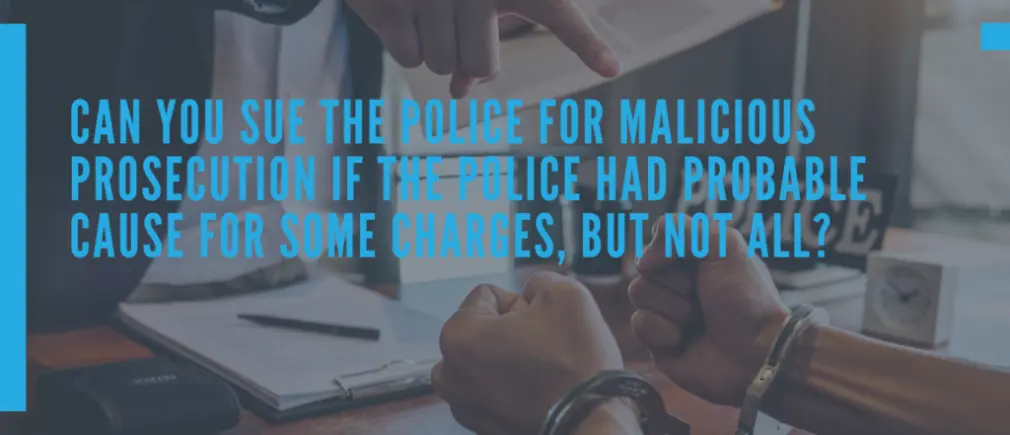|
|
Last Modified on Dec 16, 2024
The United States Supreme Courts says “Yes.”
Chiaverini v. City of Napoleon
This case deals with a Fourth Amendment malicious-prosecution claim under 42 U.S.C. §1983. For a plaintiff to win such a claim, they must prove that a government official charged them without probable cause, leading to an unreasonable seizure. The key issue here is whether valid charges protect the official from a malicious-prosecution claim if one charge lacks probable cause. The answer is no: valid charges don’t automatically shield the official. However, the court did not address how to determine if the baseless charge caused the required seizure, leaving that for future cases.
This case started with some odd interactions between Jascha Chiaverini, a jewelry store owner, and police officers in Napoleon, Ohio. Chiaverini bought a ring for $45 from a petty thief. When the rightful owners asked for it back, he refused. The police then directed him to return it, but Chiaverini said a letter from the police department told him to keep the ring as evidence. He also mentioned he was operating his store without a license, prompting the police to investigate his business.
The police filed three charges against him: two misdemeanors (receiving stolen property and dealing in precious metals without a license) and one felony (money laundering). They argued Chiaverini knew the ring was stolen, supporting their case for probable cause. Chiaverini was arrested and held for three days, but the charges were later dismissed due to prosecutorial priorities.
Chiaverini sued the officers under §1983 for malicious prosecution, arguing they lacked probable cause, especially for the felony charge. He claimed he never admitted knowing the ring was stolen and its value was far below $1,000. Both the District Court and the Sixth Circuit ruled in favor of the officers, stating that the valid misdemeanor charges were enough to negate the malicious-prosecution claim.
However, the Supreme Court noted that other appellate courts disagreed with this stance and decided to resolve the discrepancy, ultimately vacating the Sixth Circuit’s decision.
Section 1983 allows individuals to seek damages from state or local officials for violating their constitutional rights. This process involves using common-law tort principles to shape the elements and rules of the claim. For example, in a Fourth Amendment malicious-prosecution claim, the constitutional violation is an unreasonable seizure due to a baseless criminal charge.
Chiaverini’s case involved such a claim. He was arrested on multiple charges, including a felony (money laundering) and two misdemeanors (receiving stolen property and dealing in precious metals without a license). The Sixth Circuit dismissed his claim because they believed the valid misdemeanor charges nullified the impact of the baseless felony charge. However, the Supreme Court disagreed, stating that a single valid charge does not protect officials from a Fourth Amendment malicious-prosecution claim if other charges lack probable cause.
The Court emphasized that each charge must be evaluated individually for probable cause. This approach aligns with both Fourth Amendment law and common-law principles. The presence of a valid charge does not automatically negate a malicious-prosecution claim based on an invalid charge. The Supreme Court vacated the Sixth Circuit’s ruling and sent the case back for further proceedings, particularly to address how to determine if an invalid charge caused the detention when a valid charge is also present.
If you have questions or think you have a case similar in nature, contact us for a free case consultation.





